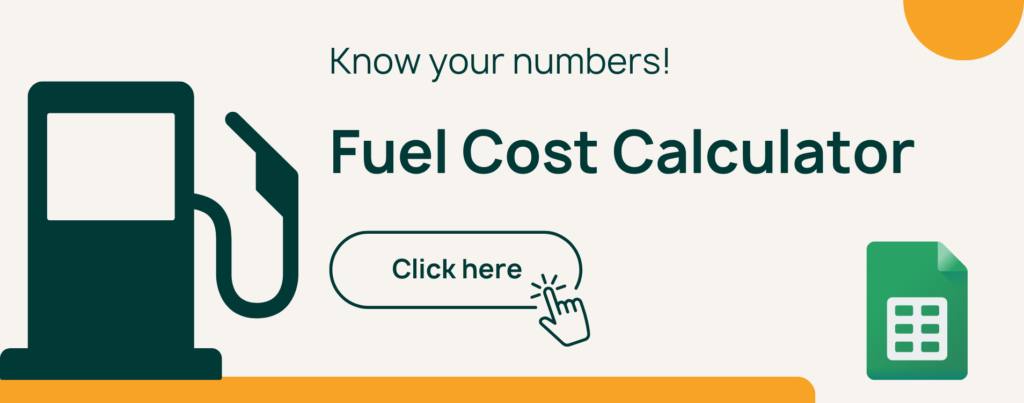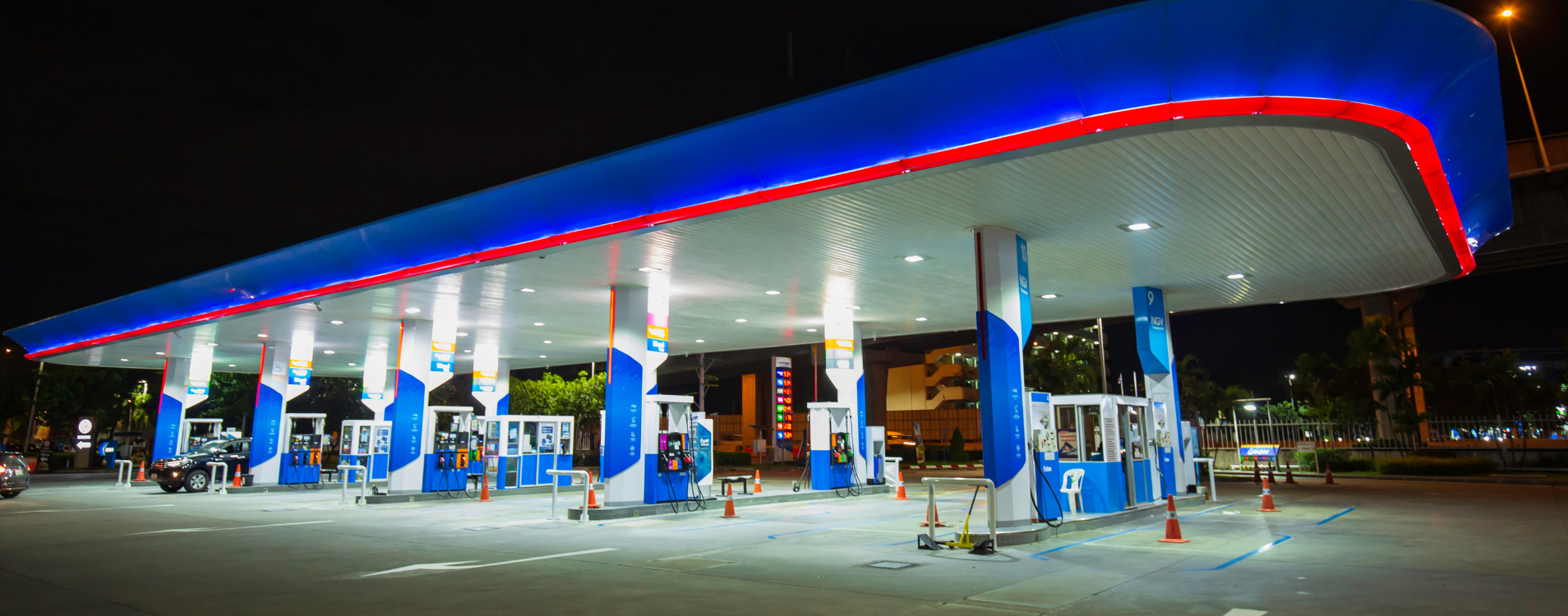Fuel Surcharges and Calculating the Cost of Fuel
In your efforts to get the best rates possible as a carrier, you’ve probably heard the phrase “fuel surcharge”. A fuel surcharge is like a financial buffer, designed to help carriers out when fuel prices rise suddenly.
Whether you’re a self-employed trucker working under another carrier’s authority or steering your own fleet, understanding how to work the price of fuel into your rates is essential.
In this blog, we’ll talk about what a fuel surcharge is and how to calculate the price of fuel for a load.
What is a fuel surcharge?
A fuel surcharge is an extra fee paid by shippers to account for the volatility of fuel prices. It does not cover the entire cost of fuel, but can certainly help pad carriers’ margins when fuel prices rise.
If you’re a leased owner-operator, driving under another carrier’s authority, you may receive an additional payment when fuel prices rise in the form of a fuel surcharge.
If you’re running a trucking business under your own authority and booking loads on the spot market (load boards), the fuel surcharge is included in the rates you get from brokers. If you’re working directly with shippers or on the contract market, you may need to negotiate the fuel surcharge separately.
How is the fuel surcharge calculated?
Typically, there are three main types of fuel surcharges:
- Standard fuel surcharge, based on the Department of Energy’s national fuel price index, calculated as a per mile payment.
- Linehaul surcharge: calculated as a percentage of the linehaul rate
- Breakthrough fuel: also referred to as third-party fuel consumption management
Any one of these fuel surcharges is added to the linehaul rate, the price of picking up and delivering a load.
Do all loads include a fuel surcharge?
It’s important to understand that there is no law requiring shippers to pay for a fuel surcharge – shippers, brokers, and carriers must negotiate the terms of fuel surcharges amongst themselves to come to a mutual agreement.
Really strategic freight brokers (the ones who want to maintain great business relationships with carriers) will negotiate the fuel surcharge with their customers and pass it on to the carrier in the form of a higher rate.
But as the carrier, you cannot depend on this happening. If you’re operating under your own authority, you need to work the cost of fuel into your negotiations with brokers and update it regularly.
But how do you know how much you’ll spend on fuel for any given load?
How to calculate the cost of fuel
Calculating the cost of fuel for a load can be tricky. Every load is different: different weights and routes can have a big impact. So here’s a step-by-step guide to calculating the cost of fuel for your next load:
First, gather all the necessary information.
Collect the necessary information, including:
- Total loaded miles
- Total deadhead miles
- The truck’s fuel efficiency (MPG) unloaded
- Weight of the load (in pounds or tons)
- Price of fuel where you plan to fill up
Now calculate the total fuel cost.
In the simplest terms, your fuel cost can be calculated as follows:
(Total miles / Fuel economy (MPG) * Price of fuel = Cost of fuel for the load
It’s always easier to calculate this using an example. Let’s say you’re taking a load from Lansing, IL to McDonough, GA. That’s 732 miles.
If we take the formula above, here’s what that looks like:
(732 miles / 6.5 miles per gallon) * $4.434 per gallon = $499.34
But trucking (and life!) is not always explainable using the simplest terms! Remember we had you get the weight of the load? This is important because, for every 1,000 pound increase in vehicle weight, fuel economy drops by approximately 0.5 percent.
Let’s calculate the cost of fuel unloaded first. You get 6.5 MPG on your truck unloaded and you’re in Benton Harbor, MI, so you need to deadhead 83 miles to the pickup.
Cost of fuel (deadhead)
(Deadhead miles / fuel economy unloaded) * Fuel price per gallon = Cost
(83 miles / 6.5 miles per gallon) * $4.434 = $56.62
Now let’s calculate the cost of fuel loaded with 42,000 pounds of freight.
First, we have to find by what percent our fuel economy will decrease based on the weight of the load.
Decrease in fuel economy
Weight Increase / 1,000 lb * 0.5
42,000 lb / 1,000 lb * 0.5% = 21%
Now we can calculate what our new fuel economy should be when loaded.
Fuel economy (loaded)
Fuel economy unloaded * (1 – Fuel economy decrease)
6.5 miles per gallon * (1-21%) = 5.135 miles per gallon
Then, we can calculate the cost of fuel for the journey to Georgia! Remember the formula?
Cost of fuel (loaded)
(Miles / fuel economy loaded) * Fuel price per gallon = Cost
(723 mi / 5.135) * $4.434 = $624.30
Finally, we can calculate the total cost of fuel for the load by adding the cost of fuel, unloaded and loaded:
$56.62 + $624.30 = $680.92
That’s another $181.58 that was not accounted for in the simpler equation listed above!
If you’d rather not do all that math every time, we’ve created a simple spreadsheet that you can copy and plug in your load data to get the estimated cost of fuel for a load. Sign up here to get access to it.

Finally, consider other factors.
Keep in mind that the calculations above provide an estimate of fuel costs. However, other factors to consider, such as fuel taxes, unexpected delays, elevation, terrain, weather, and road conditions, can impact fuel consumption and cost.
You’ll never get to an absolute exact number on the cost of fuel before accepting a load, but you can get closer by considering weight and other factors that impact your fuel economy. By knowing your costs, you can negotiate more profitable rates for your company.
Save money on fuel with the Bobtail Zero Mastercard®
Once you understand how much fuel is going to cost, you might be wondering how you can save money when buying all that fuel!
The Bobtail Zero Mastercard® is a zero-fee line of credit* designed to empower carriers like you to take control of your profitability and save money. *(This is not a credit card.)
With Bobtail Zero, you get an intuitive platform for effortlessly monitoring your fuel expenses and keeping tight control over cards.
Learn more about Bobtail Zero and apply today. Approval can take just 5 minutes!

Opinions, advice, services, or other information or content expressed or contributed here by customers, users, or others, are those of the respective author(s) or contributor(s) and do not necessarily state or reflect those of The Bancorp Bank, N.A., (“Bank”). Bank is not responsible for the accuracy of any content provided by author(s) or contributor(s).



